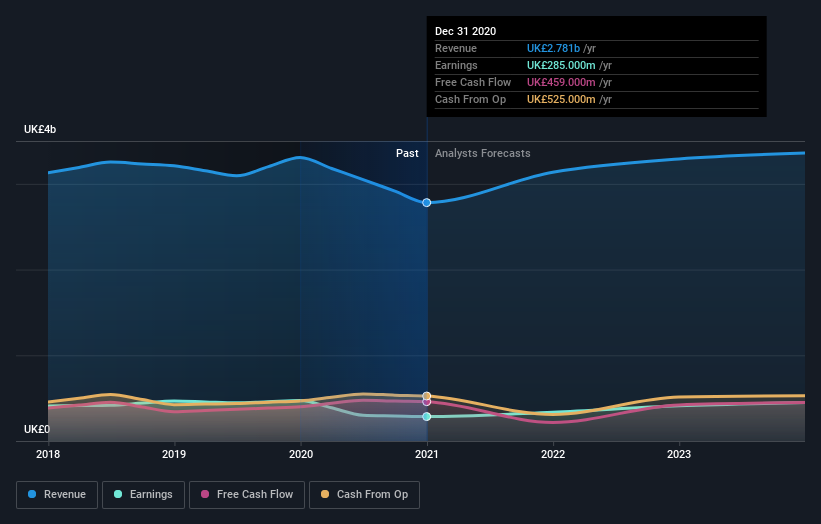Investors Who Bought ITV (LON:ITV) Shares A Year Ago Are Now Up 81%
Passive investing in index funds can generate returns that roughly match the overall market. But if you pick the right individual stocks, you could make more than that. For example, the ITV plc (LON:ITV) share price is up 81% in the last year, clearly besting the market return of around 20% (not including dividends). So that should have shareholders smiling. On the other hand, longer term shareholders have had a tougher run, with the stock falling 28% in three years.
View our latest analysis for ITV
In his essay The Superinvestors of Graham-and-Doddsville Warren Buffett described how share prices do not always rationally reflect the value of a business. One flawed but reasonable way to assess how sentiment around a company has changed is to compare the earnings per share (EPS) with the share price.
During the last year, ITV actually saw its earnings per share drop 40%.
This means it's unlikely the market is judging the company based on earnings growth. Indeed, when EPS is declining but the share price is up, it often means the market is considering other factors.
ITV's revenue actually dropped 16% over last year. So the fundamental metrics don't provide an obvious explanation for the share price gain.
The image below shows how earnings and revenue have tracked over time (if you click on the image you can see greater detail).
ITV is well known by investors, and plenty of clever analysts have tried to predict the future profit levels. You can see what analysts are predicting for ITV in this interactive graph of future profit estimates.
A Different Perspective
It's good to see that ITV has rewarded shareholders with a total shareholder return of 81% in the last twelve months. That certainly beats the loss of about 3% per year over the last half decade. The long term loss makes us cautious, but the short term TSR gain certainly hints at a brighter future. It's always interesting to track share price performance over the longer term. But to understand ITV better, we need to consider many other factors. Consider risks, for instance. Every company has them, and we've spotted 2 warning signs for ITV you should know about.
If you like to buy stocks alongside management, then you might just love this free list of companies. (Hint: insiders have been buying them).
Please note, the market returns quoted in this article reflect the market weighted average returns of stocks that currently trade on GB exchanges.
This article by Simply Wall St is general in nature. It does not constitute a recommendation to buy or sell any stock, and does not take account of your objectives, or your financial situation. We aim to bring you long-term focused analysis driven by fundamental data. Note that our analysis may not factor in the latest price-sensitive company announcements or qualitative material. Simply Wall St has no position in any stocks mentioned.
Have feedback on this article? Concerned about the content? Get in touch with us directly. Alternatively, email editorial-team (at) simplywallst.com.

 Yahoo Finance
Yahoo Finance 
